Edition: International | Vietnamese
© Copyright 1997 VnExpress.net. All rights reserved.

Before buses and taxis took over the streets, Saigon of the 1960s was dominated by three-wheeled Lambro cabs, locally known as ‘xe lam’.
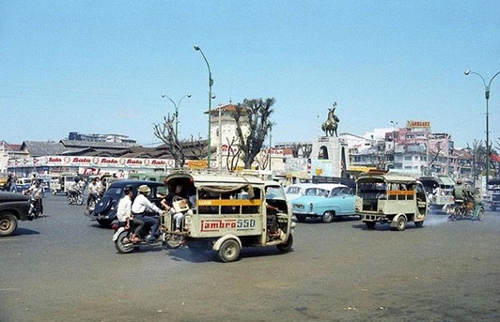
Lambro was a line of scooters from the renowned Italian Lambretta. In comparison to small horse-drawn wagons that had been extensively used in the Mekong Delta in previous decades, it proved to be more convenient and comfortable for commuters.
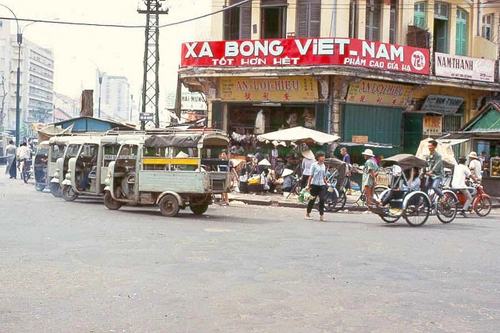
It was the main means of public transport that could carry up to 10 passengers sitting on 2 benches at the back. The driver’s cabin had a canvas top to protect them from the sun and the rain. The front seats by the driver’s side could be occupied by at least two passengers.

A lam driver at the time could earn enough money to support an entire family. But the vehicle itself was not cheap: 30 taels of gold (1.125 kg) each. It was also useful for transporting goods.
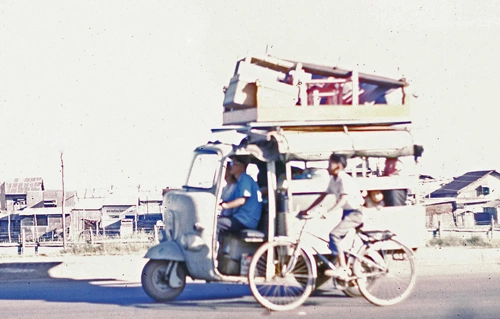
In its heyday, the special noise 'xe lam' made could be heard in every corner of the southern metropolis. In 1968, there were 3,200 Lambros in Saigon alone, out of 17,000 running all over the southern region.
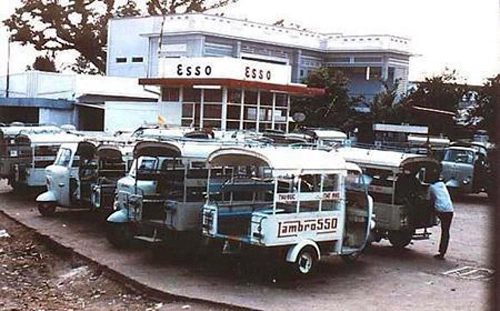
In 1971 when public bus service was terminated, the number of the Italian three-wheelers surged to 30,000 in the city, seven times higher than that of taxis.

There was no station in the Lambro network, locals could hail it anywhere on the street. Passengers’ belongings could be piled on the top of 'xe lam'.

With passengers sitting face to face on two benches, 'xe lam' might have not been ideal for tall people, but it was believed that many had found love in the narrow space of the vehicle.

'Xe lam' started vanishing from the southern streets in the 1990s to be replaced later by public buses. At the time it was used mostly as a school bus.
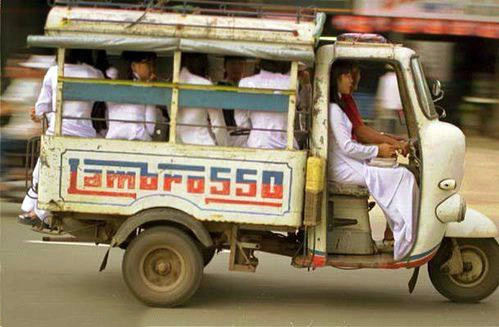
Since 2004, Lambro has been banned in big cities for traffic safety reasons.
More nostalgia:
> Rolling back the years: Old Hanoi by bicycle